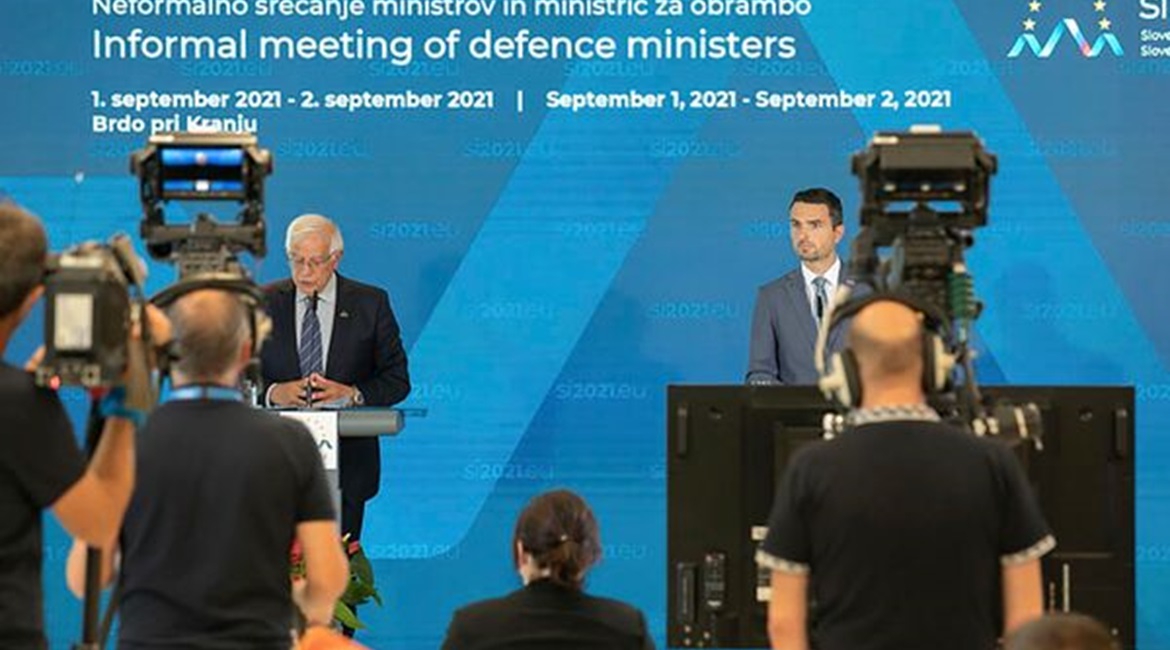
Spurred in part by the debacle of the withdrawal from Afghanistan, the EU's top security policy official said the moment is approaching for the Europeans to seriously consider creating a rapid reaction intervention force – and to overhaul how they would agree to use it in future.

EU foreign and security policy chief Josep Borell (left) told journalists after an informal defence ministers meeting on 2 September that they had discussed the creation of a European rapid reaction intervention force, which Slovenian Defence Minister Matej Tonin (right) said would require the will to use it. (Slovenian Presidency of the Council of the EU)
“Afghanistan has shown that the deficiencies in our strategic autonomy come with a price,” Josep Borrell, the EU's foreign and security policy chief, told journalists after an informal meeting of EU defence ministers in the Slovenian capital of Ljubljana on 2 September. “The only way forward is to combine our forces and strengthen our capabilities and will to act. That means raising the level of our [military] readiness through joint exercises and establishing new tools such as the intervention force,” he said, adding that the size “considered necessary” for the latter would be about 5,000 troops.
The notion for such an intervention, or rapid entry, force was first floated during a meeting of defence ministers in May 2021. It will form part of a wider package of proposals to be finalised by 16 November and known as the EU's strategic compass, which will set out the union's internal and external security orientation for the coming decades, including its military capability goals.
Looking to read the full article?
Gain unlimited access to Janes news and more...




